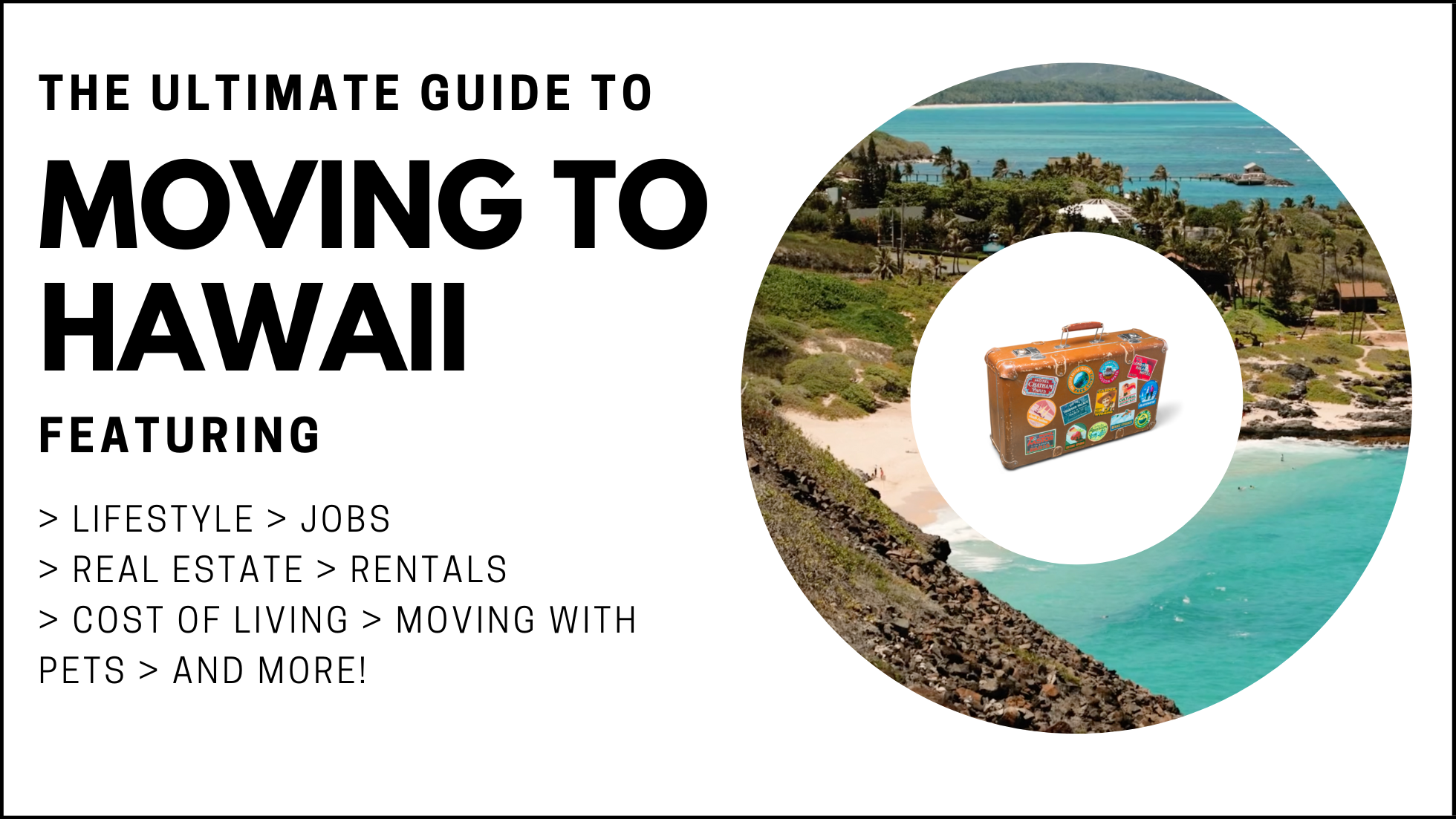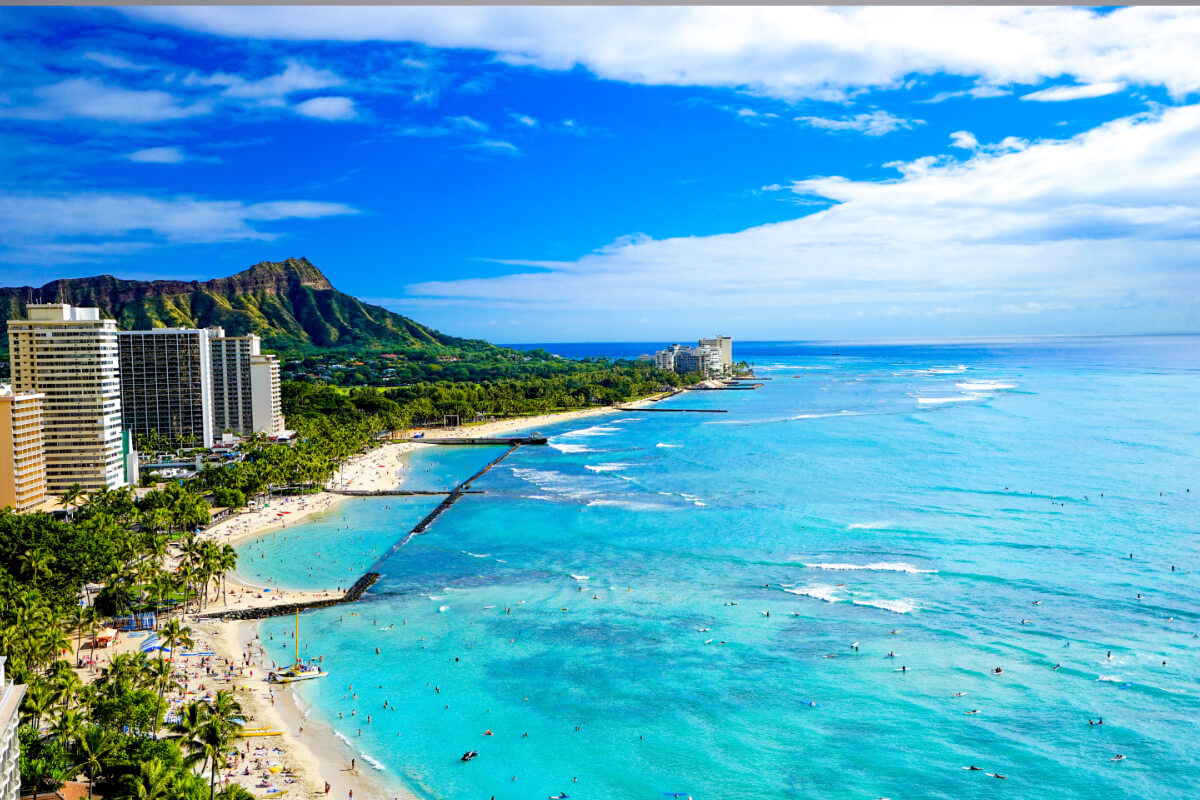Moving From Florida To Hawaii
Moving to a new state can be a daunting task, but when that state is a tropical paradise like Hawaii, the excitement is palpable. Leaving behind the sunshine state of Florida, you're trading in theme parks and alligators for active volcanoes and world-class surf. The thought of exchanging humid summers for gentle trade winds and mild winters is enticing, but it's essential to be prepared for the significant changes that come with making the move. From understanding the differences in cost of living to navigating the logistics of island life, we'll explore what you need to know before making the leap from Florida to Hawaii.

Preparing for a Successful Relocation from Florida to Hawaii
Moving from Florida to Hawaii can be a thrilling adventure, but it requires careful planning and preparation. Here are some essential factors to consider when making this significant move:
Understanding the Cost of Living in Hawaii
One of the most significant differences between Florida and Hawaii is the cost of living. Hawaii is known for being one of the most expensive states in the US, with prices for housing, food, and transportation significantly higher than in Florida. It's essential to research and understand the costs associated with living in Hawaii, including: Housing: The median home price in Hawaii is around $640,000, compared to $280,000 in Florida. Food: Grocery prices in Hawaii are around 50% higher than in Florida. Transportation: Gas prices in Hawaii are typically higher than in Florida, and owning a car can be costly.
Job Opportunities and Career Advancement
While Hawaii's economy is growing, job opportunities may be limited in certain industries. It's crucial to research job prospects in your field and consider the following: Major industries: Tourism, healthcare, and technology are significant contributors to Hawaii's economy. Job competition: Hawaii's job market can be competitive, especially in popular fields like hospitality and tourism. Remote work: With the rise of remote work, it's possible to maintain a job in Florida or find a remote opportunity in Hawaii.
Climate and Natural Environment
Hawaii's tropical climate and natural beauty are undeniable attractions, but it's essential to consider the following: Weather: Hawaii's climate is characterized by high temperatures, humidity, and occasional natural disasters like hurricanes and tsunamis. Environmental concerns: Hawaii is prone to invasive species, wildfires, and coastal erosion.
Education and Healthcare
Hawaii's education system and healthcare infrastructure are essential factors to consider when moving: Education: Hawaii's public education system is ranked 17th in the US, with several top-ranked universities and colleges. Healthcare: Hawaii has a well-regarded healthcare system, with several major hospitals and medical centers.
Logistics and Planning
Finally, it's crucial to plan the logistics of your move, including: Transportation: Research shipping options for your belongings, including containers and freight services. Housing: Secure temporary or permanent housing before making the move. Timing: Plan your move during the off-season (April to June or September to November) to avoid peak tourist season.
| Category | Florida | Hawaii |
|---|---|---|
| Median Home Price | $280,000 | $640,000 |
| Grocery Prices | 100% | 150% |
| Gas Prices | $2.50/gal | $3.50/gal |
| Job Market | Fast-paced, diverse | Competitive, tourism-focused |
Remember to research thoroughly and plan carefully to ensure a successful relocation from Florida to Hawaii.
Can I realistically move to Hawaii?

Moving to Hawaii can be a dream come true for many, but it's essential to consider the practicalities before making the leap. With its stunning natural beauty, rich culture, and tropical climate, Hawaii is an attractive destination. However, it's crucial to evaluate your circumstances, financial situation, and personal preferences before deciding if moving to Hawaii is realistic for you.
Assessing Your Finances
Moving to Hawaii can be expensive, especially when it comes to housing, transportation, and food. Here are some financial factors to consider:
- Housing costs: The cost of living in Hawaii is significantly higher than in most other states. You'll need to budget for rent or mortgage payments, which can range from $2,000 to $5,000 per month for a two-bedroom apartment or house.
- Transportation: If you plan to own a car, be prepared for higher gas prices and vehicle registration fees. Additionally, parking and traffic in popular areas like Honolulu can be challenging.
- Food and groceries: Fresh produce and meat can be expensive in Hawaii due to shipping costs. You may need to adjust your diet or budget accordingly.
Job Opportunities and Career Considerations
Hawaii's job market is competitive, and wages can be lower than in other states. Here are some career considerations:
- Job opportunities: Research the job market in your industry and consider the availability of positions, salary ranges, and growth opportunities.
- Remote work: If you're considering remote work, ensure you have a reliable internet connection and a suitable workspace.
- Entrepreneurship: If you're interested in starting your own business, research the entrepreneurial ecosystem in Hawaii and the resources available to support startups.
Lifestyle and Personal Preferences
Moving to Hawaii requires adapting to a unique island lifestyle, which may not be suitable for everyone. Here are some lifestyle considerations:
- Island fever: Living on an island can be isolating, and you may feel disconnected from the mainland. Consider whether you're comfortable with limited access to certain amenities or services.
- Climate and natural disasters: Hawaii is prone to natural disasters like hurricanes, tsunamis, and volcanic eruptions. Be prepared for the possibility of evacuation or shelter-in-place situations.
- Cultural adjustment: Hawaii has a distinct cultural identity. Be respectful of the local customs, traditions, and way of life.
How much money should you save before moving to Hawaii?

The amount of money you should save before moving to Hawaii depends on several factors, including the length of your stay, your lifestyle, and your personal financial goals. However, here are some general guidelines to consider:
Initial Expenses
Before making the move, it's essential to have enough savings to cover initial expenses such as:
- Rent: You'll need to pay for a security deposit, first month's rent, and possibly last month's rent, which can total around $2,000 to $5,000.
- Furniture and appliances: If you're moving to an unfurnished place, you'll need to budget for furniture, appliances, and household items, which can cost around $1,000 to $3,000.
- Travel and transportation: You'll need to pay for flights, car shipping or rental, and other travel-related expenses, which can range from $1,000 to $3,000.
Ongoing Expenses
Once you've settled in, you'll need to consider ongoing expenses such as:
- Food: Eating out can be expensive in Hawaii, so you may want to budget around $500 to $1,000 per month for groceries.
- Transportation: If you plan to own a car, you'll need to budget for gas, insurance, and maintenance, which can cost around $500 to $1,000 per month.
- Utilities: You'll need to pay for electricity, water, and other utilities, which can range from $150 to $300 per month.
Emergency Fund
It's always a good idea to have an emergency fund in place, especially when moving to a new location. Aim to save:
- 3-6 months' worth of expenses: This will provide a cushion in case you lose your job or face unexpected expenses.
- Additional funds for unexpected expenses: Consider saving extra for things like car repairs, medical bills, or other unexpected expenses.
- A buffer for the cost of living adjustment: Hawaii has a high cost of living, so you may need to adjust your budget accordingly. Having a buffer will help you absorb any unexpected expenses.
Ultimately, the amount of money you should save before moving to Hawaii will depend on your individual circumstances. However, aiming to save at least $10,000 to $20,000 should provide a comfortable cushion to get started.
Can I move to Hawaii without a job?

Moving to Hawaii without a job can be a challenging and risky decision, but it's not impossible. While having a job lined up before making the move is ideal, it's not the only way to make the transition to Hawaii. That being said, it's essential to have a solid plan in place to ensure a smooth transition.
Financial Preparation
Before making the move, it's crucial to have enough savings to cover living expenses for at least 6-12 months. This will give you time to find a job, get settled, and adjust to the higher cost of living in Hawaii. Some expenses to consider when creating your budget include:
- Housing: Rent or mortgage payments, utilities, and furniture
- Food: Groceries, dining out, and transportation costs
- Healthcare: Medical insurance, doctor visits, and prescription medication
Job Search and Opportunities
While having a job lined up is ideal, it's not the only way to find employment in Hawaii. You can start by searching for jobs online, networking with professionals in your industry, and considering freelance or consulting work. Some popular job search websites include:
- LinkedIn: Utilize job search features and connect with professionals in your industry
- Indeed: Search for job openings and set up job alerts
- Glassdoor: Research companies and salaries in Hawaii
Visas and Immigration
If you're not a U.S. citizen or permanent resident, you'll need to consider visa options for moving to Hawaii. Some popular visa options for workers include:
- H-1B visa: For specialty occupations, such as IT professionals or healthcare workers
- L-1 visa: For intracompany transfers or executives and managers
- O-1 visa: For individuals with extraordinary ability in their field
What time of year is cheapest to move to Hawaii?

The cheapest time to move to Hawaii depends on various factors, including the type of moving service, distance, weight, and fuel prices. However, based on historical data and industry trends, here are some general insights:
Off-Peak Season (Mid-April to Mid-June and September to Mid-December)
Moving to Hawaii during the off-peak season can result in lower costs due to reduced demand. This period typically sees fewer moves, which means lower prices for moving services, accommodations, and transportation. Some benefits of moving during the off-peak season include:
- Fewer crowds: Less traffic and congestion make it easier to navigate the islands and settle into your new home.
- Lower accommodation costs: You may be able to find more affordable temporary housing or rentals during this period.
- More flexible moving dates: With lower demand, you may have more flexibility in scheduling your move.
Avoiding Peak Season (Mid-June to Mid-August and Holidays)
Peak season, which includes summer and holidays, is the busiest and most expensive time to move to Hawaii. This period is characterized by:
- Higher demand: More people are moving to Hawaii during peak season, driving up prices for moving services and accommodations.
- Increased fuel costs: Higher fuel prices during peak season can increase the cost of transporting your belongings.
- Less flexibility: Scheduling a.mybatis move during peak season can be challenging due to high demand.
Shoulder Season (Mid-January to Mid-April and Mid-September to Mid-November)
The shoulder season, which falls between the peak and off-peak seasons, can offer a balance between cost and convenience. During this period, you may still benefit from:
- Lower prices: Moving services and accommodations may be priced lower than during peak season.
- Mild weather: The weather in Hawaii during the shoulder season is generally mild, making it easier to move and settle in.
- More availability: You may have a wider range of moving dates and services to choose from during the shoulder season.
FAQ
What are the most important things to consider when moving from Florida to Hawaii?
When planning a move from Florida to Hawaii, there are several key factors to consider. Firstly, cost is a significant consideration, as moving to Hawaii can be expensive due to its remote location. You'll need to budget for shipping costs for your belongings, as well as flights for yourself and any family members. Additionally, housing costs in Hawaii are notoriously high, so you'll need to factor in the cost of renting or buying a home. Other important considerations include job opportunities, schooling for children, and access to healthcare.
How do I transport my belongings from Florida to Hawaii?
Transporting your belongings from Florida to Hawaii requires careful planning and execution. One option is to hire a professional moving company that specializes in long-distance moves. They can handle everything from packing to shipping to delivery. Alternatively, you can opt for a DIY move, where you rent a shipping container and pack your belongings yourself. Either way, be sure to research and compare prices to find the best option for your needs and budget.
What are the biggest cultural differences between Florida and Hawaii?
Moving from Florida to Hawaii can be a significant cultural adjustment. One of the biggest differences is the island mentality, which prioritizes relaxation and enjoyment over fast-paced city living. You'll also notice a stronger sense of community in Hawaii, where family and ohana (extended family) are highly valued. Additionally, Hawaii is home to a rich and diverse cultural heritage, with influences from Native Hawaiian, Asian, and American cultures. Be prepared to adapt to a more laid-back pace of life and a unique cultural identity.
How do I prepare for the climate and natural environment of Hawaii?
Hawaii's tropical climate and natural environment require some special preparations. Firstly, be prepared for high temperatures and humidity year-round, and pack accordingly. You'll also need to consider hurricane season, which runs from June to November. Additionally, Hawaii is home to active volcanoes and earthquakes, so it's essential to have a disaster plan in place. Finally, be aware of the importance of sunscreen and insect repellent to protect yourself from the sun and insects.